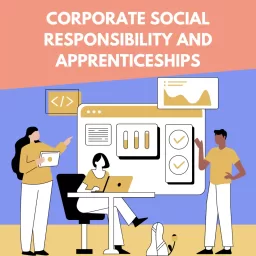The six-lettered word of the modern job market is “degree.” It hangs heavy in the air, an invisible barrier separating hopeful applicants from coveted careers. But is this requirement for higher education justified, or are we trapped in a cycle of misconceptions? Listen, I have a degree myself. Back when I graduated, 2010, like many others I was effectively told if I wanted to get a meaningful job I had to get into debt in order to acquire a slip of fancy paper. Ultimately, all it really said was I’d spent three years partying and pulling all-nighters. However, I know a lot of you out there will have been far more responsible while studying. But, let’s open the bonnet and examine the truth behind the degree requirements.
The Phantom Inflation
The widespread expectation of a degree for almost any job is a relatively recent phenomenon. This “degree inflation” began its insidious rise in the late 20th century, fueled by factors like increased university enrollment and a competitive job market. Employers, seeking a perceived marker of quality and potential, began tacking degree requirements onto job descriptions for roles that had never historically demanded them. This created a self-fulfilling prophecy as more degrees flooded the market, and employers felt even more justified in demanding them.
Behind the Parchment Veil
However, a closer look reveals the cracks in this expectation. Studies have shown that a degree, while valuable, is not the sole predictor of success. Skills, experience, and personal qualities like work ethic and communication often trump academic qualifications. Working in apprenticeships, I can attest to this having worked with some incredibly driven and now very successful ex-apprentices. Many argue that relying solely on degrees leads to a talent drain, overlooking capable individuals who may have pursued alternative paths like vocational training, apprenticeships, or self-directed learning.
Embracing Educational Diversity
Tapping into a Hidden Talent Pool
By ditching the degree filter, employers gain access to an insane pool of individuals with masses of potential talent. These individuals may have chosen alternative paths like vocational training, apprenticeships, bootcamps, or self-directed learning. These individuals often possess highly sought-after skills and unique experiences that traditional degree holders might not. This expanded talent pool can bring:
- Fresh perspectives and innovative solutions: Diverse educational backgrounds can lead to a wider range of viewpoints and approaches to problem-solving, fostering greater creativity and adaptability within an organisation;
- Enhanced innovation and productivity: Studies have shown that diverse teams outperform homogenous ones, thanks to the cross-pollination of ideas and the challenge of established norms;
- Lower hiring costs and faster recruitment: With a larger pool of qualified candidates, you can reduce time spent searching and interviewing while potentially discovering hidden gems at more competitive salary points.
Promoting Social Mobility and Inclusivity
Removing degree barriers levels the playing field for candidates from a myriad of backgrounds who may not have equal access to higher education or simply cannot pursue it. This can lead to:
- A more equitable and representative workforce: Hiring based on skills and potential rather than academic pedigree creates a more inclusive and diverse work environment, fostering a sense of belonging for all employees;
- Enhanced employer brand and reputation: Companies committed to diversity and inclusion attract top talent and resonate with socially conscious consumers, giving them a competitive edge in the marketplace;
- Greater community engagement: By recruiting from a wider range of backgrounds, you can build stronger connections with your local communities and tap into their diverse skills and perspectives.
Let’s also face facts, recent generations just aren’t prepared to get into £45,000+ worth of debt to join the fiercely competitive graduate job market. An entirely logical decision.
Building a Future-Proof Workforce:
In today’s rapidly evolving job market, skills are the new currency. Focusing on skills and adaptability rather than degrees allows you to:
- Stay ahead of the curve: As technology and industries change, the ability to learn and adapt will be crucial. An educationally diverse workforce is more likely to possess the flexibility and agility needed to thrive in uncertain times;
- Develop a deeper understanding of your customers: With a workforce that reflects the diversity of your customer base, you can gain valuable insights into their needs and preferences, leading to better products and services;
- Foster a culture of continuous learning: When everyone is valued for their unique skills and experiences, regardless of their educational background, an environment of continuous learning and development is encouraged, benefiting both individuals and the organization as a whole.
To wrap up
Remember, a degree can be a valuable stepping stone, but it’s not the only path to success. By rethinking our assumptions and prioritising skills over credentials, we can unlock the full potential of a workforce and build a future where merit, not a piece of paper, reigns supreme.
















